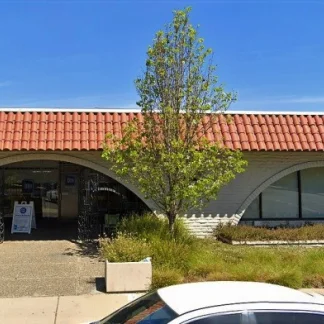CHS - Community Human Services - Outpatient Treatment Center
Community Human Services (CHS) offers outpatient treatment for individuals with ...
Door to Hope -- The Door is a nonprofit drug and alcohol addiction treatment program in Salinas, California. This is a small (14-bed) residential program with medication-assisted treatment (MAT) services that exclusively serves women. Their program lasts between three to six months to ensure treatment is effective.
The residence at The Door is a small Tudor-style house. Clients live together in the home under the care of staff in a warm and collaborative healing environment. Since there is no “one size fits all” solution for substance abuse, clients receive highly individualized care during their stay. Treatment plans may include assessments, individual counseling, anger management, stress reduction training, Matrix Model, motivational enhancement therapy, education groups, seeking safety groups, and 12-step recovery groups.
Clients with severe symptoms may be prescribed medication during their stay. MAT helps clients cope with withdrawal symptoms and cravings so they can better focus on treatment. Medication use through MAT is closely monitored by staff.
Many private insurance plans, like ComPsych, Wellmark, TRICARE, HCSC, BlueCross BlueShield, and others, cover some or all of addiction rehab costs. Clients should first confirm coverage, as out of network benefits may vary.
Contact us for more information: (831) 422-2636

Connect with Door To Hope - California Street by calling their admissions team directly.
(831) 422-2636 Website Get DirectionsThe Commission on Accreditation of Rehabilitation Facilities (CARF) is a non-profit organization that specifically accredits rehab organizations. Founded in 1966, CARF's, mission is to help service providers like rehab facilities maintain high standards of care.
CARF Accreditation: Yes Accreditation Number: 261884
Research clearly demonstrates that recovery is far more successful and sustainable when loved ones like family members participate in rehab and substance abuse treatment. Genetic factors may be at play when it comes to drug and alcohol addiction, as well as mental health issues. Family dynamics often play a critical role in addiction triggers, and if properly educated, family members can be a strong source of support when it comes to rehabilitation.
Group therapy is any therapeutic work that happens in a group (not one-on-one). There are a number of different group therapy modalities, including support groups, experiential therapy, psycho-education, and more. Group therapy involves treatment as well as processing interaction between group members.
In individual therapy, a patient meets one-on-one with a trained psychologist or counselor. Therapy is a pivotal part of effective substance abuse treatment, as it often covers root causes of addiction, including challenges faced by the patient in their social, family, and work/school life.
Life skills trainings involve all the skills a person must have in order to function successfully in the world. These include time management, career guidance, money management, and effective communication. Truly successful addiction recovery is based on the ability to not only live substance-free, but to thrive. Life skills teaches the practical necessities of functioning in society, which sets clients up for success in life, and therefore sobriety.
Group therapy is any therapeutic work that happens in a group (not one-on-one). There are a number of different group therapy modalities, including support groups, experiential therapy, psycho-education, and more. Group therapy involves treatment as well as processing interaction between group members.
In individual therapy, a patient meets one-on-one with a trained psychologist or counselor. Therapy is a pivotal part of effective substance abuse treatment, as it often covers root causes of addiction, including challenges faced by the patient in their social, family, and work/school life.
Life skills trainings involve all the skills a person must have in order to function successfully in the world. These include time management, career guidance, money management, and effective communication. Truly successful addiction recovery is based on the ability to not only live substance-free, but to thrive. Life skills teaches the practical necessities of functioning in society, which sets clients up for success in life, and therefore sobriety.
In individual therapy, a patient meets one-on-one with a trained psychologist or counselor. Therapy is a pivotal part of effective substance abuse treatment, as it often covers root causes of addiction, including challenges faced by the patient in their social, family, and work/school life.
Life skills trainings involve all the skills a person must have in order to function successfully in the world. These include time management, career guidance, money management, and effective communication. Truly successful addiction recovery is based on the ability to not only live substance-free, but to thrive. Life skills teaches the practical necessities of functioning in society, which sets clients up for success in life, and therefore sobriety.
Life skills trainings involve all the skills a person must have in order to function successfully in the world. These include time management, career guidance, money management, and effective communication. Truly successful addiction recovery is based on the ability to not only live substance-free, but to thrive. Life skills teaches the practical necessities of functioning in society, which sets clients up for success in life, and therefore sobriety.
Community Human Services (CHS) offers outpatient treatment for individuals with ...
Sun Street Center – Central Avenue is a private rehab located in Salinas, Califo...
Door to Hope is a nonprofit mental health and substance abuse recovery program i...
EMQ FamiliesFirst is a private rehab located in Salinas, California. EMQ Familie...